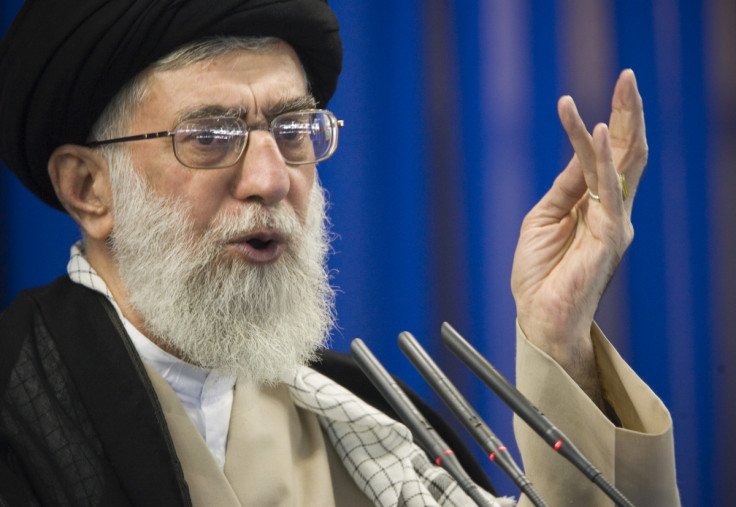Iran nuclear deal: US rejects Ali Khamenei's demand on sanctions

The US has reiterated that lifting of sanctions against Iran will happen in phases and not as soon as a nuclear deal is signed.
Iranian Supreme Leader Ayatollah Ali Khamenei and President Hassan Rouhani have been saying that all sanctions must be lifted immediately after the agreement.
"We're not going to respond to every public statement made by Iranian officials or negotiate in public. Sanctions will be suspended in a phased manner upon verification that Iran has met specific commitments under a finalised joint comprehensive plan of action," said State Department spokesman Jeff Rathke in a statement.
"I have never been optimistic about the talks with the United States," said Khamenei, adding that he would concur with an agreement in the interest of his nation.
The Iranian leader on his official website cautioned his officials against any "hasty" decision.
Another area of contention is the insistence of the West that Iran fully cooperates on an IAEA investigation into its past nuclear activities, possible military dimensions (PMDs).
"PMD is out of the question. It cannot be discussed," an Iranian official told Reuters.
Khamenei ruled out opening Iran's military sites for inspection.
Iran will never accept "unusual monitoring" on its nuclear facilities for a deal, he said.
He, however, said Iran was against development of a nuclear weapon, saying that "based on the Islamic teachings and wisdom, the Islamic republic has never been after acquiring a nuclear weapon and will never do so".
An interim deal agreed last week between Iran and six world powers - the US, Russia, China, France, the UK and Germany - is to be finalised by the end of June.
The West accuses Iran of trying to develop nuclear weapons but Iran insists that its nuclear programme is only for peaceful purposes.
According to the interim agreement, Iran will have to cut its stocks of highly enriched uranium by 98% over a period of 15 years, while its unfinished Arak heavy water reactor will not produce weapons-grade plutonium.
Tehran will also reduce its number of centrifuges to 6,104 from around 19,000, roughly two-thirds of the whole amount.
International monitoring of Iranian nuclear research is also part of the deal.
The West has warned that sanctions would be back if there was any breach of agreement.
© Copyright IBTimes 2025. All rights reserved.





















